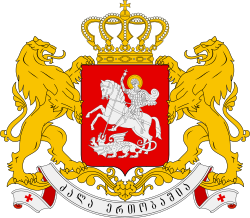Conduct
Reports of violence, voter intimidation and ballot box stuffing began coming in shortly after the polling stations opened. The biggest problem, however, was the voter lists prepared by the Georgian government. Mikhail Saakashvili was among tens of thousands who were denied the right to vote. His name, along with names of many thousands across the country, was missing from the voter list prepared by the Georgian government. Entire neighborhoods were mysteriously removed from the voter list in the areas where opposition was likely to do well.
Georgian analysts described the vote as "the messiest and most chaotic election" the country has ever had. "The government did everything to make this election chaotic. I think there were also (those in) government (who) did not want this election to be orderly because they knew they would lose it," said Ghia Nodia of the Caucasus Institute for Democracy and Development.
An international mission from the Organization for Security and Cooperation in Europe (OSCE) declared that the election fell short of international standards. "These elections have, regrettably, been insufficient to enhance the credibility of either the electoral or the democratic process," said Bruce George, special co-ordinator of the OSCE chairman-in-office. Some 450 international observers from 43 countries monitored the polls in one of the largest and longest election observation missions in the OSCE's history. [2] [3]
Supporting the allegations of electoral fraud were also exit polls conducted by an American company, Global Strategy, which showed that the opposition had won by a large margin, with the National Movement coming first with 20% and the government block polling only 14% of the vote.
This page is based on this
Wikipedia article Text is available under the
CC BY-SA 4.0 license; additional terms may apply.
Images, videos and audio are available under their respective licenses.
